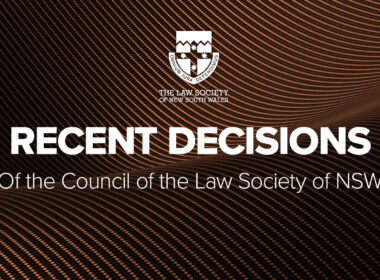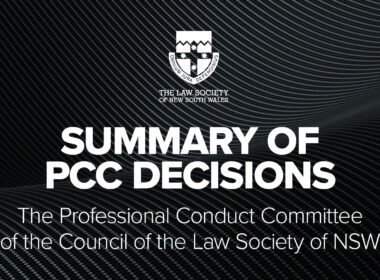On 11 September 2024, the federal Attorney General introduced the Anti-Money Laundering and Counter-Terrorism Financing Amendment Bill 2024 (Bill) into Parliament.
The Bill represents the most significant reforms to the Australian AML/CTF Act since its inception, aiming to expand the scope to cover certain services provided by real estate professionals, dealers in precious stones and metals, and professional service providers such as lawyers and accountants. It also seeks to modernise the regulatory framework, particularly in response to the growing use of digital currencies and virtual assets. These reforms are known as the ‘tranche two’ reforms.
Over the coming months, AUSTRAC will consult with industry to further develop and amend the existing Anti-Money Laundering and Counter-Terrorism Financing Rules (AML/CTF Rules). This will bring the Rules into line with the Bill.
The reforms are expected to commence in March 2026 with certain obligations for lawyers commencing in July 2026.
Why are the changes happening?
The AML reforms are happening because:
- there is currently a gap in the Australian AML/CTF regulation of designated non-financial businesses and professions, such as the gatekeeper professions including lawyers, the tranche two professions,
- Australia is one of five (out of 200) jurisdictions in the Financial Action Task Force (FATF) Global Network that do not regulate tranche two professions. As such, Australia is at risk of being grey listed by the FATF which will result not just in damaging its international reputation, but could cause significant economic harm to Australia and its businesses, and
- with respect to services provided by lawyers, some are globally recognised as having a high risk for money laundering exploitation. Lawyers can therefore unwittingly facilitate money laundering when providing those services.
What services will be captured?
The services applying to professional services (such as lawyers) that are proposed to be captured by the AML reforms are called ‘designated services’ and will include:
- assisting a person in the planning or execution of a transaction, or otherwise acting for or on behalf of a person in a transaction to buy, sell or transfer real estate,
- assisting a person in the planning or execution of a transaction, or otherwise acting for or on behalf of a person in a transaction to buy, sell or transfer a body corporate or legal arrangement,
- receiving, holding and controlling or managing a person’s money, accounts, securities or securities accounts, virtual assets or other property as part of assisting or acting in a transaction (subject to specified exemptions),
- assisting a person in organising, planning or executing a transaction, or otherwise acting for or on behalf of a person in a transaction for equity or debt financing relating to a body corporate or legal arrangement,
- selling or transferring a shelf company,
- assisting a person to plan or execute or acting in the creation or restructuring of a body corporate or legal arrangement,
- acting as, or arranging for another person to act as, any of the following, on behalf of a person (nominator):
-
- a director or secretary of a company,
- a power of attorney of a body corporate or legal arrangement,
- a partner in a partnership,
- a trustee of an express trust, or
- a position in any other legal arrangement that is functionally equivalent to a position mentioned above, other than in specified circumstances,
- acting as, or arranging for another person to act as, a nominee shareholder of a body corporate or legal arrangement, on behalf of a person (the nominator), and
- providing a registered office address or principal place of business address for a body corporate or legal arrangement.
It is important to note that not every service provided by a lawyer will be captured by the AML reforms. Once the Bill is enacted, lawyers will need to work out whether they provide designated services.
An entity that provides designated services is known as a ‘reporting entity’.
Reporting Entity Obligations
The key obligations for a reporting entity include:
- conducting customer due diligence – reporting entities will need to identify and verify the identity of their clients and certain associated persons as well as understand the money laundering and terrorism financing (ML/TF) risks associated with providing designated services to the client. They must also take appropriate steps to mitigate and manage those ML/TF risks,
- conducting ongoing customer due diligence –a reporting entity must monitor its clients to appropriately identify, assess, manage and mitigate the ML/TF risk that entity may reasonably face when providing the designated services,
- developing and maintaining an AML Program – a reporting entity must have and comply with an AML/CTF program which comprises that entity’s ML/TF risk assessment and AML/CTF policies,
- reporting obligations – a reporting entity will have to make suspicious matter and other reports to the regulator, AUSTRAC,
- enrolment – a reporting entity will need to enrol with AUSTRAC within 28 days of when it commences to provide designated services,
- record keeping – a reporting entity will need to make and keep certain records, and
- AML/CTF compliance officer – a reporting entity must have an AML/CTF compliance officer, who among other things will oversee and coordinate the effective operation of, and compliance with, that entity’s AML/CTF policies. The AML/CTF compliance officer must meet certain requirements including being a fit and proper person. That officer can either be an employee or be engaged externally by the reporting entity.
What can you do now to prepare for the reforms?
The Law Society is committed to assisting practitioners navigate and be prepared for the changes to Australia’s AML/CTF legislation. As a reminder, the resources currently include a complimentary, self-paced, interactive e-learning resource which covers how lawyers can strengthen their practice against ML/TF risks.
The Law Society has also created two complimentary webinars, featuring panel discussions on AML/CTF. The webinars cover the effect of the Australian AML/CTF reforms on solicitors and provide an overview of AML/CTF obligations for solicitors and the experience in other jurisdictions.’
The Law Society has also assisted the Law Council of Australia to create a comprehensive suite of written guidance material for practitioners on AML/CTF.
The Law Society’s Professional Support Unit (PSU) provides free and confidential guidance to all solicitors regarding their obligations under the Legal Profession Uniform Law in the areas of costs, ethics and regulatory compliance.
Enquiries regarding AML can be made to PSU by telephone, email, or in person. Please contact aml@lawsociety.com.au or (02) 9926 0249.
For the latest information, as well as access to AML/CTF resources and information, go to the Law Society’s designated AML/CTF hub.




